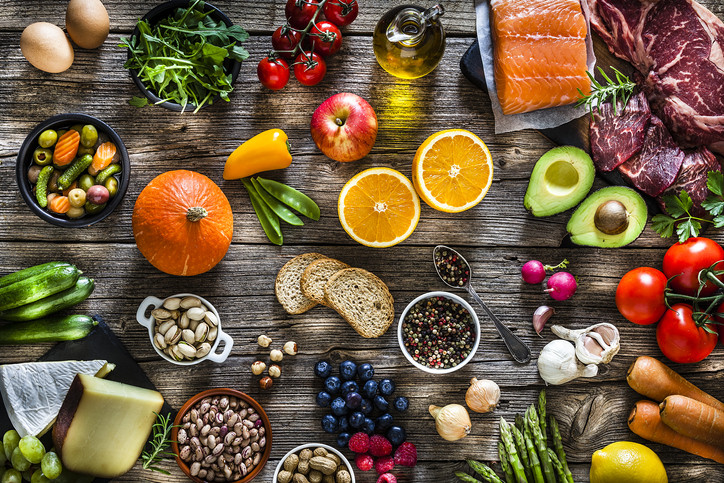Introduction to Fmybrainsout
Welcome to the ultimate guide on healthy eating brought to you by Fmybrainsout! If you’re looking to nourish your body, boost your energy levels, and feel your absolute best, then you’ve come to the right place. Healthy eating isn’t just about counting calories; it’s a lifestyle that can transform your overall well-being. So grab a seat, get ready to explore the fundamentals of a balanced diet, and let’s dive into how Fmybrainsout can help you achieve optimal health through nutritious choices!
Why Healthy Eating Matters
Picture this: your body is like a high-performance machine, and the fuel you put into it determines how well it runs. Healthy eating matters because it directly impacts your energy levels, mood, productivity, and overall well-being. When you nourish yourself with nutrient-dense foods, you are giving your body the tools it needs to thrive.
Furthermore, a balanced diet can help prevent chronic diseases such as heart disease, diabetes, and certain types of cancer. By making smart food choices now, you are investing in your long-term health and quality of life. Healthy eating isn’t just about looking good; it’s about feeling good from the inside out.
Remember that what you eat today can influence how you feel tomorrow. So why not choose foods that will make you feel vibrant and alive? Embrace healthy eating as a way to show love and respect for yourself – because after all… Fmybrainsout!
The Basics of a Healthy Diet
Are you ready to dive into the basics of a healthy diet? It’s not as complicated as it may seem! A well-rounded healthy diet includes a variety of foods from all food groups. Start by incorporating plenty of fruits and vegetables into your meals. These colorful gems are packed with essential vitamins, minerals, and antioxidants that keep your body in top shape.
Next up, don’t forget about whole grains like brown rice, quinoa, and oats. They provide fiber for digestion and energy to fuel your day. Lean proteins such as chicken, fish, tofu or beans are also crucial for muscle repair and growth.
Healthy fats found in avocados, nuts, seeds, and olive oil should also have a place on your plate. And last but not least – hydration! Drink plenty of water throughout the day to keep your body functioning optimally.
By following these simple guidelines, you’ll be well on your way to nourishing your body from fmybrainsout!
6 Essential Nutrients for Optimal Health
When it comes to optimizing your health, ensuring you consume the right nutrients is key. There are six essential nutrients that play vital roles in keeping your body functioning at its best.
First up, we have protein – the building block of muscles, skin, and bones. Make sure to include sources like lean meats, fish, eggs, and legumes in your diet.
Next on the list is carbohydrates – they provide energy for your body. Opt for whole grains such as brown rice, quinoa, and oats over refined carbs like white bread.
Don’t forget about healthy fats! Avocados, nuts, seeds, and olive oil are great sources of monounsaturated and polyunsaturated fats that support heart health.
Vitamins are also crucial – from immune function (hello vitamin C!) to bone health (vitamin D), these micronutrients keep you thriving.
Minerals shouldn’t be overlooked either. Calcium for strong bones; iron for carrying oxygen in red blood cells; potassium for nerve function – all essential!
Lastly but certainly not least is water! Staying hydrated is key for digestion, circulation, temperature regulation…the list goes on. So drink up!
How to Meal Plan for a Healthy Diet
Meal planning is a key ingredient in maintaining a healthy diet. Start by assessing your schedule and lifestyle to determine how many meals you need to plan for each week. Dedicate some time to research recipes that are nutritious and delicious, ensuring you have a good balance of proteins, carbohydrates, and fats.
Once you’ve selected your recipes, make a detailed shopping list with all the ingredients you’ll need for the week ahead. Consider batch cooking certain meals to save time during busy days. Prepping ingredients in advance can also streamline your cooking process.
Invest in quality food storage containers to keep your prepped ingredients fresh and organized. Having healthy snacks readily available can prevent impulsive unhealthy choices when hunger strikes. Experiment with different meal planning strategies until you find what works best for your lifestyle – whether it’s planning out every meal or simply having healthy staples on hand for quick and easy meals throughout the week.
With thoughtful preparation and organization, meal planning can not only simplify your life but also set you up for success on your journey towards healthier eating habits.
Tips for Incorporating More Fruits and Vegetables into Your Diet
Are you looking to boost your intake of fruits and vegetables for a healthier lifestyle? Here are some practical tips to help you incorporate more of these nutritious foods into your diet:
1. Start by setting specific goals: Whether it’s adding an extra serving of fruits or veggies to each meal, aim for attainable targets that work for you.
2. Get creative with cooking methods: Experiment with different recipes, such as roasting vegetables or blending fruits into smoothies, to keep things interesting.
3. Make healthy swaps: Substitute unhealthy snacks with fresh fruit or vegetable sticks for a nutritious alternative.
4. Plan ahead: Prepping fruits and veggies in advance can make it easier to grab them on-the-go when hunger strikes.
5. Add variety: Explore different types of produce to ensure you’re getting a wide range of vitamins and minerals in your diet.
Incorporating more fruits and vegetables into your daily meals is a great way to nourish your body and support overall health!
The Role of Whole Foods and Processed Foods in Healthy Eating
When it comes to healthy eating, understanding the roles of whole foods and processed foods is crucial. Whole foods are natural and minimally processed, retaining their nutrients and health benefits. Fruits, vegetables, whole grains, nuts, and seeds are examples of nutrient-dense whole foods that should make up a significant portion of your diet.
On the other hand, processed foods often contain added sugars, unhealthy fats, and artificial ingredients that can have negative effects on your health. These items typically lack essential nutrients and fiber found in whole foods. It’s important to limit consumption of processed snacks, sugary beverages, fast food meals, and pre-packaged convenience items.
By focusing on incorporating more whole foods into your daily meals while reducing intake of processed options as much as possible can help you maintain a balanced and nutritious diet for optimal health.
Managing Portion Sizes and Mindful Eating
Portion control is key when it comes to maintaining a healthy diet. It’s not just about what you eat, but how much you eat that matters.
Being mindful of your portions can help prevent overeating and unnecessary calorie intake. One tip is to use smaller plates to trick your mind into thinking you’re eating more than you actually are.
Another strategy is to listen to your body’s hunger cues and stop eating when you feel satisfied, rather than finishing everything on your plate out of habit.
Avoid distractions while eating, such as watching TV or scrolling through your phone, as this can lead to mindless overeating.
Remember that it’s okay to indulge occasionally, but moderation is key. Enjoying treats in small portions can satisfy cravings without derailing your progress towards healthier eating habits.
The Importance of Staying Hydrated
Staying hydrated is crucial for overall health and well-being. Water plays a vital role in various bodily functions, including digestion, circulation, temperature regulation, and nutrient transportation. By drinking an adequate amount of water daily, you can help boost your metabolism and energy levels while supporting healthy skin and weight management.
Incorporating hydration into your daily routine doesn’t have to be complicated. Carry a reusable water bottle with you throughout the day as a reminder to sip regularly. You can also infuse your water with fresh fruits or herbs for added flavor without the extra sugar or calories found in soda or juice.
Remember, listening to your body’s thirst cues is key. By staying hydrated and making mindful choices about what you eat and drink, you’ll be well on your way to achieving optimal health through Fmybrainsout!






